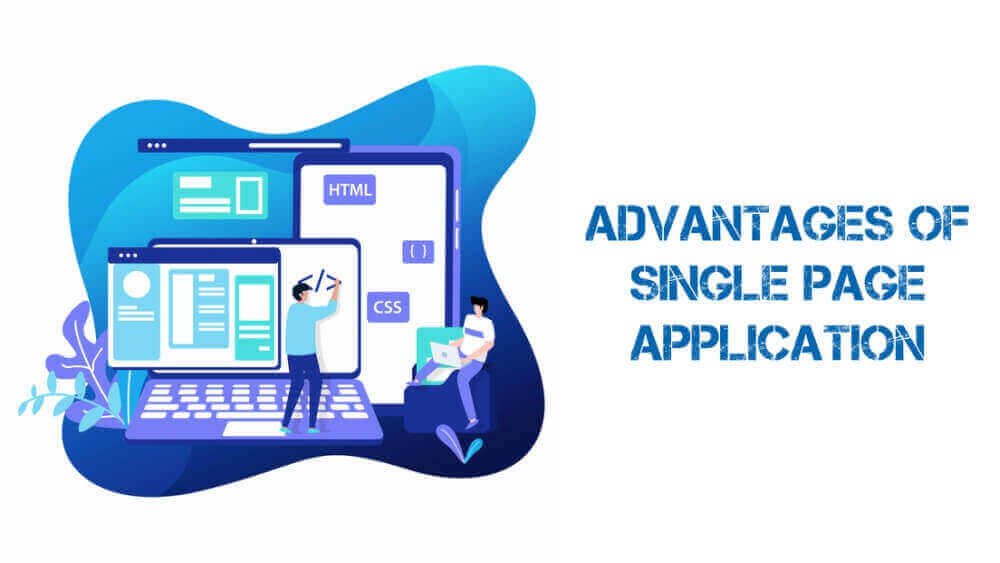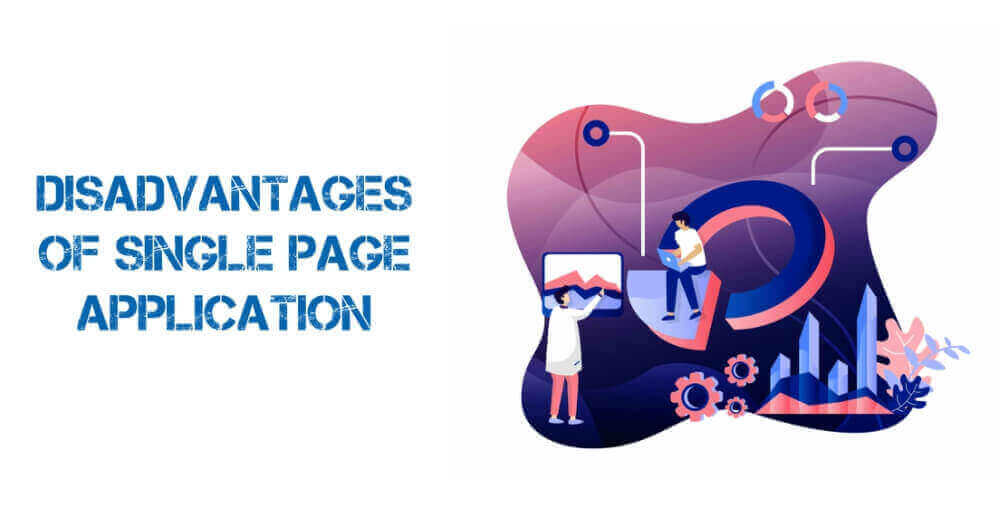Web applications have almost replaced the old desktop applications. They are more convenient to use, they are easy to update, and they can be used in multiple devices. In today’s time, there are two types of web applications we can create: (1) Single Page Application (SPA) and Multi Page Application (MPA). SPAs are considered more modern than MPAs. When deciding between single page application and multi page application, it’s necessary to bear in mind your business goals and how they can be furthered with a specific development approach.
What is a SPA (Single Page Application)?
SPAs are all about serving an outstanding User Experience with no page reloading and no extra time waiting. A single page application works inside a browser and it is just one web page that you visit which then loads all other content using JavaScript. The most common SPAs are: Gmail, Google Maps, Facebook, GitHub and many more.
SPA requests the data & mark-up separately and renders pages directly in the browser. We can do this by using advanced JavaScript frameworks & libraries like Angular, React, Vue.js, Meteor.js, Knockout.js and many more. Single-page sites help keep the user in one, comfortable web space where content is presented to the user in a simple, easy and workable fashion.
Which are the frameworks for developing Single Page Applications?
Why should we want to build an Application as SPA?
The first question is: Why should we use Single Page Applications? These types of applications have been available from years, but they have not become famous in the public Internet except last 2 years. This is something that is often taken for granted. Nowadays everybody is building applications this way, but what is the big advantage of that? There have to be at least a couple of good features, right?
Let’s have a look at some of the advantages and disadvantages of SPAs.
Advantages of Single Page Application:
Fast and Flexible:
As SPAs don’t update the entire page but only update required dynamic content, they remarkably improve a website’s speed. Most resources & DOM elements are only loaded once throughout the complete cycle of an application. Only data is transmitted back and forth. This is a great advantage as it reduces the page load speed and waiting time for users, and according to Google research, if a page takes more than 2 seconds to load it can have a potentially high impact on business and sales.
User-friendly UX:
SPAs provide users with a simple linear experience and an excellent interactive experience using parallax scrolling and marvellous transitions effects to present the complete user iteration. With SPAs, scrolling is continuous and this makes them perfectly suited for mobile users who have become habituated to scrolling.
Caching Power:
SPAs can cache any local data effectively. An SPA sends only one request to the server and then stores all the data it receives, after that it can use this data without requesting data from server and work even offline. If user has bad internet connectivity, then local data can be synchronized with the server when the connection allows.
Bug Tracing with Browser:
It’s easy to debug an SPA with browser as such apps are developed using frameworks, which are made using client-side language JavaScript & Typescript. These frameworks have their own browser developer tools that make debugging much easier for developers. Additionally, SPAs allow you to monitor network operations and investigate page elements & data associated with them.
Simplicity and Features:
The development of SPA is simplified and streamlined as there is no need to write code to render pages on the server. Single Page Applications are super easy to deploy in production and even to version over time. SPAs can have many interesting features but one of the most important and useful features is attractive UI with material design.
But with all their benefits, SPAs also have some disadvantages that you should consider. Let’s take a look at them.
Disadvantages of Single Page Application:
Browser history:
As described earlier, SPAs don’t reload the entire page and update the URL & resources of web page. So it is clear that there can’t be any browsing history by which we can’t go back or forth. This means that when users click the back button, they won’t go back; a browser only takes users to the previous page, not to the previous state in an app.
SEO optimization:
SEO mainly depend on URL, Meta tags, page sessions, content & web page crawling, but managing all these things in SPAs are much more complicated than traditional web apps. Some people are saying that SPAs provide poor SEO optimization; this is because single-page apps operate on JavaScript and download data on request from the client side. The URL is changed but it doesn’t reload the page with its unique content and resources, so It is hard to optimize these websites for search engines since most pages can’t be crawled by search bots. There are some options available to resolve these issues but still it is a question to ask.
Security issues:
Single Page Apps are less resistive to XSS attacks and using XSS, hackers can inject client-side scripts directly into web applications which can surely injure web apps. If developers do not take care of sensitive data contained in the initial page load can easily exposed to all users which definitely shouldn’t be.
JavaScript Dependency in Browser:
SPAs require JavaScript to be present and enabled in the browser. If any user disables JavaScript in browser, it won’t be possible to present application and its actions in a correct way.
When to use an SPA?
When you approach any web app development company or mean stack development company then they will surely help you choose the type of web app that perfectly fits with your requirements. Single Page Web Applications can be used perfectly for building dynamic web applications because the main drawback of the SPA is poor SEO optimization. So this architecture is excellent for dynamic web apps, social networks and community platforms where SEO doesn’t really matter. If a project requires effective SEO then definitely Multi-Page Application is much more useful than Single-Page Application.



